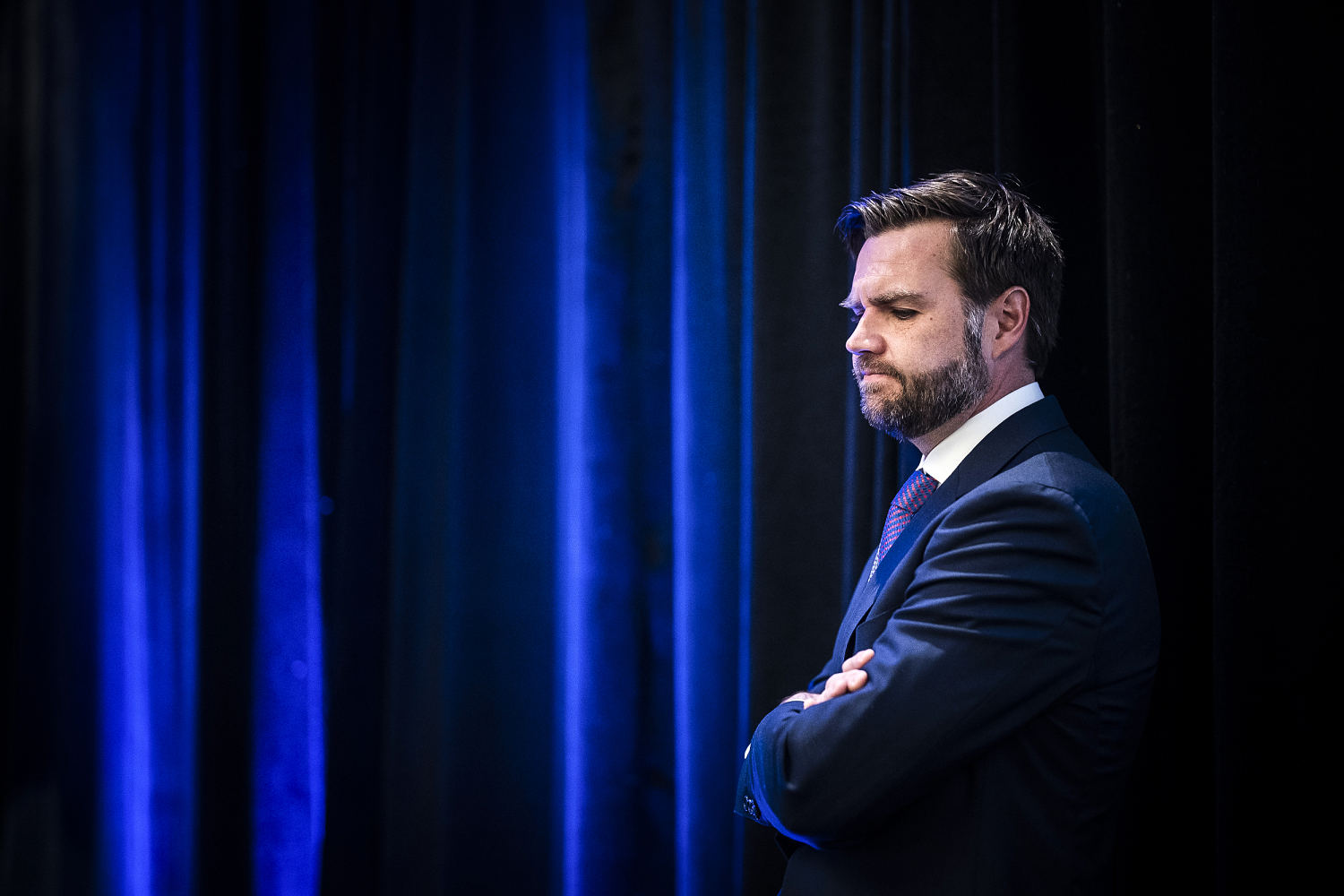
If Sen. JD Vance, R-Ohio, were merely a “pro-family” politician, no one would bat an eye. Helping parents with the difficult and important work of raising children is a bipartisan goal, even if Democrats and Republicans may disagree on how best to do it. But as usual, Donald Trump’s running mate couldn’t help himself. By now most people have heard about Vance’s attack on “childless cat ladies.” It wasn’t a stray remark; Vance has repeatedly expressed his disdain for those “childless sociopaths,” whom he argues “don’t have a direct stake” in our country.
The first problem here is that households with children already pay lower taxes than people without them.
But it isn’t just rhetoric: Vance has proposed sweeping policy changes to the political and economic status of parents and nonparents. Taken together, they reveal a particularly selfish perspective on politics, as though we all view policy choices only through our narrow self-interest.
Begin with taxes. “If you are making $100,000, $400,000 a year,” Vance said in a 2021 interview, “and you’ve got three kids, you should pay a different, lower tax rate than if you are making the same amount of money and you don’t have any kids. It’s that simple.”
The first problem here is that households with children already pay lower taxes than people without them. For instance, look at the Earned Income Tax Credit for low-income workers. In 2023, a married couple with no children could only get a credit if their income was lower than $24,210. A couple with two children was eligible if their income was up to $59,478. The credit itself was worth only $600 to childless couples, but up to $6,600 for those with three children — a full 11 times as much.
That’s just one tax credit; parents also get personal exemptions for children, the child tax credit, deductions for child care and many more. If Vance wants to enhance those features of the tax code, he’ll get lots of agreement from Democrats, who are also eager to expand the affordability of child care, give kids free lunch in schools and pass many other pro-family policies. This week, in fact, Senate Democrats are moving ahead with a House bill — backed by nearly 170 Republicans — that would expand the child tax credit. But rather than prove his pro-family bona fides, Vance is expected to skip the vote.
The trouble is that Vance presents more tax breaks for parents not as a way to help people who need it, but a moral judgment in favor of the very act of becoming a parent — and a punishment for those who can’t have children, haven’t had them yet, or have decided not to. We should “reward the things that we think are good,” he said in that 2021 interview, and “punish the things that we think are bad.”
His views on taxes are just one indication of Vance’s perspective. “When you go to the polls in this country, you should have more power — more of an ability to speak your voice in our democratic republic — than people who don’t have kids,” he said in a 2021 speech. “If you don’t have much of an investment in the future of this country, then maybe you shouldn’t get nearly the same voice.”
This idea is not just an affront to one-person-one-vote democracy, it’s a remarkably selfish conception of what democracy actually entails. When we vote on which direction our nation should go, we aren’t just trying to maximize returns on our “investment.” We’re citizens, which means we deliberate and act together to obtain prosperity, peace, justice, and all the other values we want to pursue. We ask not just “What kind of country is good for me?” but “What kind of country is good?”
People who don’t have cars pay taxes that are used to build roads and bridges — and those who use cars pay taxes to support public transit.
Similarly, when it comes to the taxes we pay, we aren’t homo economicus, only pursuing our individual self-interest. There are tens of millions of taxpayers — both those without children and those whose children have grown — who pay property taxes knowing that they support local schools, despite not having children enrolled in them.
People who don’t have cars pay taxes that are used to build roads and bridges — and those who use cars pay taxes to support public transit. Young people pay payroll taxes that fund Social Security and Medicare for their elders. We fund research to find cures for diseases most of us will never contract, to aid suffering people in foreign countries, and to provide broadband to communities where we’ll never live.
Despite what people like Vance would have us believe, we all understand intuitively that we do this because we value each other and the future, whether we have children or not. When you learn that Dolly Parton has given away over 200 million books to kids, you don’t say, “What’s wrong with her? She doesn’t have any children, why should she care about anybody else’s?”
If you said that, you’d be some kind of weirdo. Or maybe the next vice president.

Leave a Reply